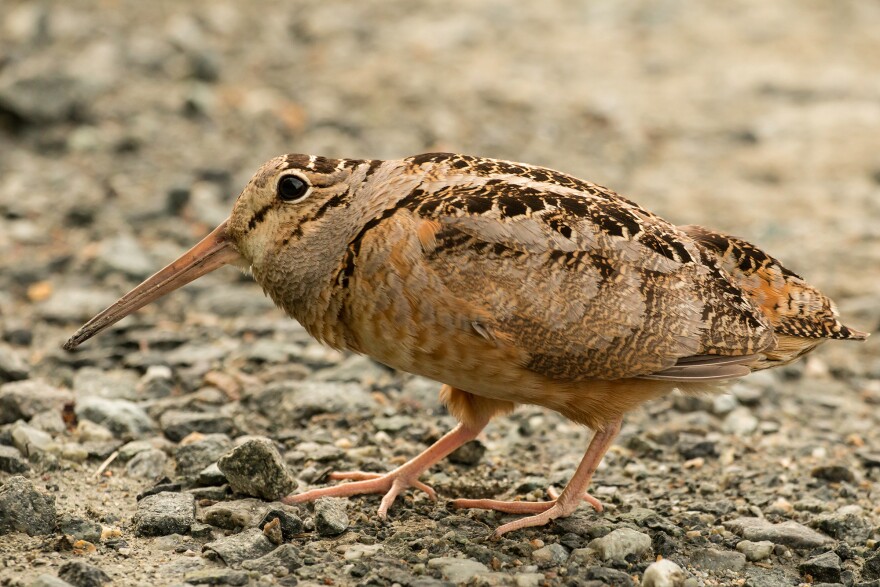Several birds that live in and fly around Wisconsin will have new names soon.
That’s because the American Ornithological Society promised last November to rename all birds with English names, along with any other bird names deemed offensive and exclusionary. That includes birds like Cooper’s hawk, Wilson’s warbler, Franklin’s gull, and dozens more.
“This is more about making birding just a bit more welcoming to BIPOC and other populations traditionally excluded from the birding community,” says Jeff Galligan, co-founder of the BIPOC Birding Club of Wisconsin. “And that attracts great minds from a relatively untapped resource, and that will benefit birds.”
The move is part of a broader effort to address past wrongs and make birding a more inclusive experience. Birds named after people often honor white men who were racist and enslavers. For example, John James Audubon enslaved people, and John Kirk Townsend stole skulls from Native American graves.
“It's hard to ask people to come and join you on a birding outing, or to join a society that's named after somebody who was a slave owner,” Galligan says. “So, I also believe [this decision] is an acknowledgment that we need all things outdoors to be truly inclusive and equitable. And they are not that right now.”
The AOS has said the renaming process will take years, but it has started by focusing on 70 to 80 bird species that can be found across the U.S. and Canada. There’s currently a total of 263 bird species with English names.
The society also promised to engage the public and has said that the scientific names of birds won’t be changed as part of this initiative.
"This decision will not end racism or [Equity, Diversity and Inclusion] issues within the birding community," Galligan says. “It's not going to do that at all. But it is a step in the right direction, and I think it's a fairly significant step.”
He says movement on this issue came in 2020 when a group called Bird Names for Birds wrote to AOS leadership pointing out the issues with eponymous and honorific bird names and demanding change.
In its letter, the group noted a 2019 proposal to rename a small prairie bird previously named after Confederate General John P. McCown had been rejected. In 2021, the AOS officially renamed the bird the Thick-billed longspur.
“[For the AOS,] it was kind of a way of punting the issue for a moment,” Galligan says. “It was a necessary change, but it wasn’t really addressing the issue. But the Bird Names for Birds folks kept on it, and it made a difference.”
The society acknowledged the efforts of Bird Names for Birds in its final recommendations report to the committee in charge of the renaming process.
“Birds need our help more than ever right now, especially songbirds,” Galligan says. “By making this decision, it does pave the way for a more diverse birding community and more people who are really informed and concerned about the reduction in songbirds.”
Galligan suggests that new bird names should be more scientifically accurate and reflect a bird's physical traits or habitat and not have consideration for humans at all. This, he says, would allow new birders to identify birds more easily.
“The argument that we're trying to erase history or change history — no, that's not it at all,” Galligan says. “What we're trying to do is shed light on it, and then make the changes that we need to move on as a society in a much more friendly, welcoming, inclusive environment.”
Chirp Chat’s Bird of the Month for March

“They’re just the cutest little things,” Galligan says. “They look awkward, but they're real neat. They do what's called 'peenting' right at dusk, and then the males do these amazing aerial dances. Usually, about right after sunset, they'll fly up several hundred feet and do these crazy loops and then flutter back down to the earth, making a chirping sound. And that's how they present for females. It's really fun to go out and watch and listen to that.”







